How to Become a Court Appointed
Special Advocate (CASA)
1. Information Session
Attend an information session and learn about the role, responsiblities, requirements, and experiences of current advocate volunteers.
2. Apply
Complete an online application and pass required background checks.
3. Interview
Attend an interview with CASA staff members where you will tell us more about yourself and share why you’re interested in volunteering. We ensure the volunteers who work with our kids are there for the right reasons, and we take that very seriously.
4. CASA University
Our CASA University is 42 hours of training that prepares you to be a successful advocate for a child. This consists of in-person and online training spread out over five weeks.
5. Graduation
Congratulations! You’ve completed pre-service training and will be sworn in officially as a Court Appointed Special Advocate (CASA) by a judge in the juvenile
dependency system.
6. Begin Advocating
After graduation, you’ll be assigned to an Advocate Supervisor who will work closely with you on your child’s case, offer resources, and provide support throughout your CASA service.
Types of Advocacy

Traditional
The goal of CASA is to protect and ensure each child’s right to a safe, permanent home. These children have come into the Juvenile Dependency Court system as the victims of abuse, neglect and/or abandonment. Their caretakers have been unable to keep them safe, so social services and the legal systems have entered their lives.
The CASA volunteer is a sworn officer of the court whose job is to provide the juvenile court judge or referee with an independent assessment of the circumstances of the child. The CASA’s report is drawn from their evaluation of interviews they conduct with the key parties in the child’s life. The CASA makes recommendations for the disposition of the case based on the child’s total circumstances. In addition, the CASA attends all court hearings pertaining to the child. With the support of the Program staff, they represent the interest of the child in the proceedings, which are normally scheduled every six months.

Family Connections
Our goal is to connect foster children with as many appropriate family members as possible and to ultimately gain permanent life connections. There is compelling evidence that shows children who have some connection with members of their birth family have improved behavior, improved school performance, and more hopefulness in their lives.
The Family Connections CASA will identify and engage family members in the lives of children in the foster care system. The project focuses on connecting children who have few or no relationships with their extended family members.
Thank you to our Family Connections Funders: Founding Funder: The Cynthia Lake Charitable Trust Support Funder: The Semloh Foundation.

Mental Health
Mental Health Advocates take on a short-term (45 day) assignment where they can advocate for a child by mining their court files and documenting their mental health concerns and any trauma the child has endured. The documentation is then compiled into a report by the Mental Health Advocate Supervisor and provided to the proper professionals. This work ensures the children get appropriate mental health treatment.
FAQ
1. What is a CASA?
CASA is an acronym that stands for Court Appointed Special Advocate. A CASA is a volunteer who serves as a dedicated mentor and advocate, appointed by the courts, with the mission of assisting children who have endured abuse and neglect. These compassionate individuals establish unwavering relationships, offering consistent support and guidance throughout the youth’s journey within the dependency system. CASA volunteers go above and beyond by gathering crucial information about the child’s case and well-being, enabling them to make informed recommendations that prioritize the child’s best interests.
2. What are the requirements to become CASA Advocate?
a. Be at least 21 years of age.
b. Complete and pass a DOJ Live Scan background check.
c. Possess a valid California driver’s license.
d. Own or have access to reliable transportation.
e. Complete the application and include three references.
f. Complete the 42-hour CASA University training.
3. How do I begin?
Your first step to becoming a CASA is to attend an Information Session. This is your chance to learn more about the program, understand the training and screening requirements, and ask questions. Click here to register for an Information Session.
4. How long is my commitment and how much time will I be expected to contribute each month?
CASA of Kern County requires an 18-month minimum commitment from all CASA’s.
Every child and every case is different. The amount of time required will vary, depending on the case and the child’s age and needs. CASA’s devote, on average, 10-15 hours per month.
5. Are there any disqualifications?
The CASA program has strict criteria for applicant eligibility. People with convictions for crimes against children, violent felonies, or sex crimes are automatically excluded, regardless of when the conviction occurred. Applicants undergoing prosecution, except for minor vehicle offenses, are also automatically excluded. Convictions within the past five years, like drug violations, lead to automatic exclusion, while older violations are reviewed carefully. Motor vehicle code violations with multiple points or a certain total of points result in exclusion. For other criminal histories, the CASA Program staff considers factors such as the nature of the crime, time since the offense, rehabilitation efforts, references, and involvement in therapy or education. In cases involving child welfare, including CPS involvement or seeking custody, the automatic exclusion applies. However, for applicants connected to CPS reports or the juvenile court system, factors like the nature, number, and circumstances of the reports are evaluated. Lastly, the exclusion for individuals providing services in the child welfare or juvenile court system depends on staff review of conflicts of interest.
6. What educational or work experience do I need to become a CASA
To become a CASA, all you need is a genuine concern for children and their well-being. Your life experiences, common sense, and the desire to make a difference are the fundamental qualities that equip you to embark on this meaningful journey. In fact, it is precisely these qualities that make you invaluable. CASA volunteers are ordinary individuals, much like yourself, who bring a fresh perspective to each case. You will undergo comprehensive training and receive ongoing supervision to ensure that you fully grasp and embrace your role as a CASA. Your dedication and commitment will be supported every step of the way.
7. What are a CASA volunteer’s responsibilities/boundaries?
A CASA volunteer assumes the role of a mentor, a powerful advocate, and an officer of the court; but it’s important to note that they do not take the child into their own home or act as the child’s primary caregiver. As a CASA, you will establish a stable and trusting relationship with a young person, taking the time to understand their unique background and conducting interviews with significant individuals in their life. Your role also involves assisting them in setting age-appropriate goals and facilitating access to essential services such as medical, educational, career, and housing support. During court hearings, typically held every six months, you will provide well-informed recommendations to the judge, aiming to determine what is in the best interest of the child. By upholding important boundaries and maintaining your role as a CASA, you have the opportunity to make a truly transformative and life-changing difference in the child’s life.
8. Can CASA make a difference for a child?
The presence of a caring adult in the life of an abused child can have a profound and lasting impact. Abuse, neglect, and trauma can adversely affect a child’s physical and mental health, as well as their academic success. Studies have shown that children with a CASA volunteer are more likely to find safe and permanent homes, achieve academic success, and are half as likely to re-enter foster care. CASA volunteers in Kern County contribute to improved outcomes, including increased stability, enhanced educational attainment, and better physical and mental health for the children they support.
9. May I be a CASA with my partner?
Yes! CASA of Kern County actively promotes and supports partnerships, including spouses, siblings, mothers and daughters, and other family members, to become Co-CASAs, as it allows us to serve larger sibling sets. Please note that while you may be a Co-CASA, you both must complete your individual requirements needed in order to become a CASA.
10. What support can I expect if I need help with my CASA child?
Every CASA volunteer receives support and maintains regular contact with a dedicated Advocate Supervisor who are paid employees that possess professional expertise and experience in the field. Additionally, throughout your journey as a CASA, you will have a Program Manager and a supportive team of CASA staff by your side, providing guidance and assistance at every stage of the process. These professionals are committed to ensuring that you have the necessary resources and support needed to fulfill your role effectively and make a lasting impact on the lives of the children you serve.
11. I’m not sure I can commit to becoming CASA right now. Is there something else I can do to help?
CASA has a variety of opportunities that would allow you to support our mission to serve abused children. You might consider assisting with activities for our children and advocates or getting involved in fundraising projects. Please visit our donation webpage to learn about other opportunities to participate in CASA’s important work.
